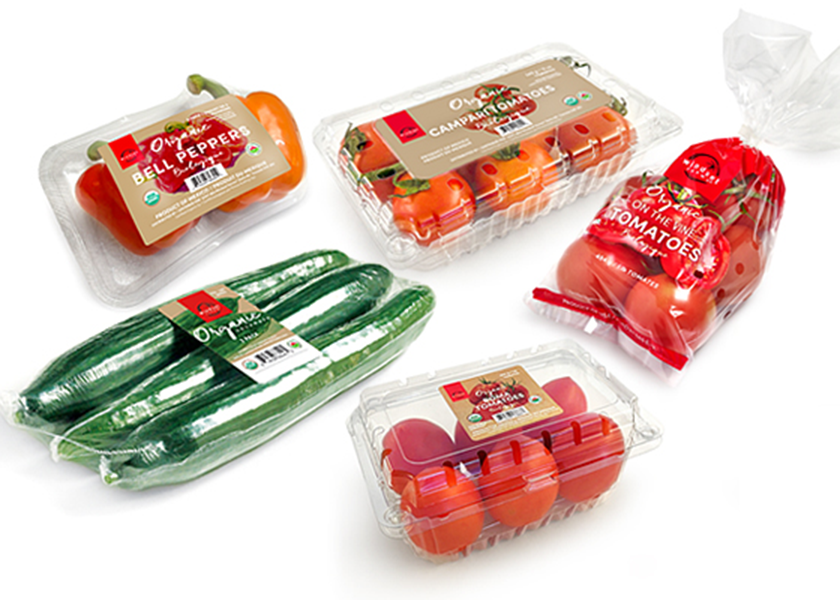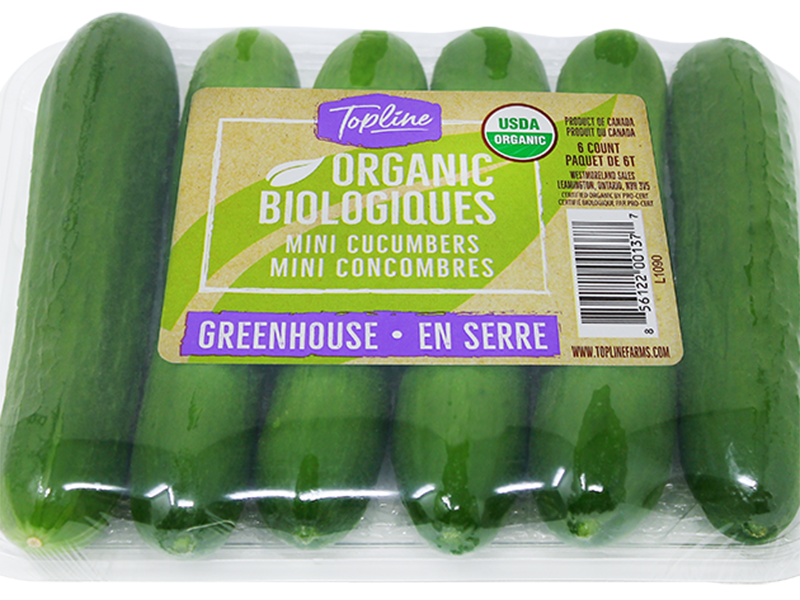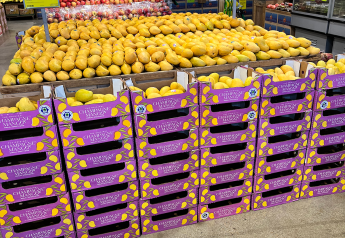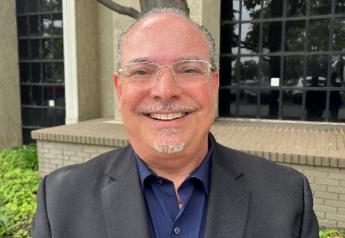Bags, sustainability remain top packaging trends for organics

Pouch and poly bags tend to be the preferred pack styles for organic apples and certain other types of fruit, while sustainable packaging remains top of mind for organic growers, retailers and consumers.
“We’ve definitely seen a significant increase in bag demand over the past few years,” said Joel Hewitt, domestic sales and organic manager for Wenatchee, Wash.-based CMI Orchards LLC, which markets the Daisy Girl Organics brand.
“Customers like the ease-of-access option to grab a bag of fruit instead of sorting through the bulk themselves,” he said. “And retailers see the benefit with the bag options making it easy to trade customers up to buying 2 to 3 pounds of fruit instead of just one or two pieces.”
Sage Fruit Co. LLC, Yakima, Wash., offers multiple packaging options, including bulk, poly bags and pouch bags, said Chuck Sinks, president of sales and marketing.
“Over the past several years, we have seen an increase in demand for pouch bags over poly bags,” he said. “But the largest shift we have seen is actually in the demand for private label organic packaging.”
Related news: Emerald Packaging makes shift to solar
Wenatchee-based Stemilt Growers LLC packs its kid-size Lil Snappers fruit in 3-pound pouch bags and also offers a larger pouch bag and a new sustainable package that helps sell larger-sized apples, said Brianna Shales, marketing director.
“Bags are a great vehicle for merchandising organics, and they help ensure that ring for organic at the register,” she said.
The use of bags has increased at Yakima-based Domex Superfresh Growers, just as organic sales have increased, said Catherine Gipe-Stewart, director of marketing,
“We tend to bag a high percentage of our apples and pears so that the higher value comes through on the cashier ring,” she said.
Burlington, Ontario-based EarthFresh Foods Inc. uses light-blocking poly, paper, compostable and bio-based mesh bags to package its various product offerings, said Dan Martin, chief operations officer.
“Over the years, we are seeing a slight increase in the request of compostable paper that we pack in both our Atlanta and Burlington facilities,” he said. “We continue to evolve in our sustainable packaging and growing practices.”
Salinas, Calif.-based Pacific International Marketing Inc. uses mostly low-density polyethylene (LDPE) plastic bags and twist ties, said Kim Fellom, sales executive and marketing manager.
“We also use poly and wax cartons for our organic items,” she said. “However, we are slowly transitioning from nonrecyclable wax cartons to recyclable poly cartons on some of our items.”
Growers work to provide Kalispell, Mont.-based Access Organics Inc. with “the best options that work within the parameters for our commodities,” owner and founder Bonnie Poux said.
That means strong, unwaxed cardboard for citrus and vegetable programs as well as a poly-corrugated carton for the wet vegetable items, she said.

Leamington, Ontario-based Westmoreland Sales Group has several sustainable packaging options available, ranging from pulp fiber trays to paper top seals and non-PVC film for mini cucumbers, said Joseph Talbourdet, director of marketing and business development.
No matter what type of packaging they use, packers continue to make sustainability a top priority.
At CMI orchards, the company’s Relax program received the top award for Best Business to Consumer Sustainability Messaging at The Packer’s Sustainable Produce Summit last June, Rochelle Bohm, vice president of marketing, pointed out.
“Relax delivers clear, concise and impactful communication that resonates with customers on a practical and emotional level and is backed by concrete, authentic sustainability claims,” she said.
The company also has introduced its first plastic pouch bag with a bio additive that helps it degrade quickly with less residue, Bohm said.
Salinas-based Naturipe Farms LLC has taken several important steps to incorporate sustainable practices into its packaging, said Brian Vertrees, director of business development.
Those steps include the use of wash-away labels and putting How2Recycle logos on packaging.
Pama, Idaho-based Owyhee Produce is always looking for ways to be more sustainable with its operation, and that’s especially true with packaging, said Bailey Myers, agritourism guide and marketing director.
“We do our best to source our materials from the businesses that also value being sustainable,” she said. “We also want to support local and USA companies as often as we can.”
Related news: Future shines bright for organic research: Q&A with OFRF’s Brise Tencer
Packaging that is sustainable and keeps the product “fresh and enjoyable” is a top priority at Delta, British Columbia-based Windset Farms, said Jeff Madu, vice president of sales.
“Recyclability of packaging is a primary focus, with all our punnets and clamshells being 100% recyclable where facilities exist,” he said.
The company plans to introduce new sustainable packaging options for its greenhouse-grown products in the near future.
Westmoreland Sales Group is committed to move away from all non-sustainable packaging, Talbourdet said.
“Moving organic to fully recyclable dry goods with paper labels and [Price Look-Up] stickers is one of our key mandates in 2023,” he said.
But Gipe-Stewart said the term sustainable is relative.
“Sustainable” packaging, such as cardboard and compostable bags, often take more resources, like water, energy and carbon footprint, to produce than plastic, she said.
“Plus, these are more expensive to manufacture and would drive prices up higher than the demand threshold,” she said.
Domex Superfresh Growers continues to research and trial packaging that is innovative, but keeps coming back to the poly bag, Gipe-Stewart said.







